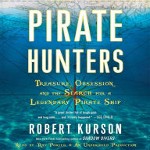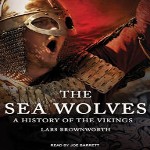JULY 2015
AUDIO BOOK REVIEWS
by Jonathan Lowe
 |
THE
SPIRAL NOTEBOOK by Stephen Singular refers
to the diary and notes taken by James Holmes before
committing mass murder in an Aurora Colorado movie theater.
While following Holmes from the shooting and through
the court system, he also brings into focus other shootings,
such as Columbine, Sandy Hook, Virginia Tech, and the
Washington Navy Yard, using interviews and commentary
from science in an effort to understand the reasons
and prevent future crimes. Tom Taylorson reads
the audiobook, moving from the dramatic recounting
of events to the steady examinations of culture and
stress. In a society that demands and rewards aggression
to establish one’s identity, one that equates
popularity, money, and power with self worth, the stresses
that hit young kids early and often are out of control.
The violent video game market has benefited from these
stresses, becoming multi-billion dollar companies. But
sometimes games such as Grand Theft Auto don’t
provide sufficient relief from these stresses, and kids
move on to real weapons. Since that part of the brain
(frontal cortex) associated with decision making doesn’t
fully develop until age 25, it explains why most mass
shooters are between 18-25, and male (because peer pressure
to physically dominate is greatest for males.) Add rejection,
stress, loneliness, a feeling of estrangement or unfairness,
of being “disrespected” (as one shooter
put it), and you have the perfect storm of revenge.
As contrast, the author (who lived in Spain for a time)
contrasts the culture here with there. In Barcelona,
he says, one does not sit alone in coffee shops, face
down in a computer screen, not talking to anyone. They
find American habits and obsessions with weapons odd,
and sad, and they do not have even 10% of the per capita
gun crime we do. He recounts one shooter saying that
“if only one person had talked to me, or cared,
I wouldn’t have done it.” The author suggests
yoga (or even walking with a friend) as a better way
of relieving stress than violent video games, which
numb the mind to accept violence as inevitable just
by repetition. A must hear. |
|
 |
PIRATE
HUNTERS by Robert Kurson is the true story
of the search for a legendary pirate ship, the Golden
Fleece, which was captained by the infamous Joseph Bannister
but was sunk in a sea battle off what is now the Dominican
Republic in the late 1600s. Kurson spices up his story,
not just with rum, but shadowy characters out of the
“golden age” of piracy, and narrator
Ray Porter is up to the task of dispelling
the myths of pirates (who didn’t make people walk
the plank, but more often shot them and threw them overboard.)
Porter spoons out the tricks and treats with the tone
of frustration and suspense that the principals (John
Chatterton and John Mattera) must have felt in risking
their fortunes on finding an extremely rare wreck hidden
for centuries, despite charts and sketchy accounts that
had rivals searching the wrong plots of undersea landscape
for years. Most of the book is about that search on
land, at sea, in history books, and the tensions between
the men as they argued and planned an expedition to
finally find what was under everyone’s noses all
along. Since it’s a case that isn’t finished
in the courts, or even in years of excavation, recovery,
our cataloging, (not to mention who gets what and when
and how much), it does make sense to focus on what led
to the discovery, incorporating the history and legend
and myths of pirates. Intrigue, real stories, and a
great narrator. Can’t ask for much more. Another
pirate book I never forgot was PIRATE HUNTER
by Richard Zacks, from 2003, the unbelievable
yet true story of Captain Kidd. That’s a book
which puts you right on board with a immediacy that’s
breathtaking, and twists galore. It’s read with
always steady control and engagement by Michael Prichard.
|
|
|
THE
SECOND MACHINE AGE examines IT (information technology)
and computer science, which is the new industrial revolution.
The first revolution to change the world was advances
in physical strength by machines doing the work of mankind.
(Steam engine to gas engine.) Now it is brain power and
efficiency of production using computers. The authors
argue that this is a great plus for humanity, but that
it favors those with skills, and increases income disparity
between rich...and poo ISIS recruits. So the future may
be like the movie Elysium. Education and adaptability
to change are key. Quote from Authors: "The past
is no guide to understanding what the world will become."
Audiobook is an Audie Award winner this year as best science
audiobook. |
|
 |
His
name is Jackson Oz, but there’s no yellow brick
road back to sanity in ZOO by James Patterson.
As a biologist, Oz seeks help from a ecologist named Chloe
in what has been adapted by CBS for a television mini-series.
Animals in Los Angeles and elsewhere are going feral and
attacking humans for inexplicable reasons, and most of
the book is an attempt at discovery and containment, while
the military and government officials try to shoot the
animals, or, at one point, discuss using napalm. Despite
the scientific jargon applied to the situation, most are
stymied by the reason, and postulate everything from solar
radiation to cell phone towers changing chemicals in the
atmosphere. The main point here is that mistreated animals
(not just lions, bears, apes, and tigers, but cats and
dogs) are now dealing revenge on the naked apes (us.)
So it’s a kind of cautionary tale in which we are
forced to reconsider our own supremacy and possible extinction
(ego being mankind’s fatal flaw.) The best thing
about this 8 hour audiobook is the narrator, Jay Snyder,
a talented Broadway and film and voiceover actor who manages
to maintain listener engagement by being totally believable
(as opposed to corny), with the appropriate mood setting
evolution of tone required to keep things rolling. |
|
 |
THE
SEA WOLVES by Lars Brownworth is a chilling
history of the Vikings, and their conquests across England
and Europe around 800 AD. It was a dark age of blood
and violence, and this book shows how one’s twisted
religious beliefs can influence how a man acts against
those who are not in the club: with a club. The Vikings
believed in Norse gods who were jealous rivals, hoarders,
plunderers, and murderers. In their mythology the world
would end bathed in blood, as hellish creatures fed
on everyone (except for two gods who would survive to
start the whole process over again.) Naturally, taking
this positive message to heart, they also plundered,
raped, and killed, showing no mercy to innocents (kinda
like ISIS.) One Norseman called another a “child
lover” for not wanting to participate in the blood
sport of tossing live babies into the air and catching
them on the point of a spear. They invented a game similar
to hockey, and were heavily into fitness as well as
other sports. Did anything good come of all the pillage
and cruelty? Well, they settled Iceland, founded Dublin,
and created the trial by jury method of law. Of course
back then if you were found guilty, you could be thrown
into a pit of vipers, naked. Where, no doubt, you would
sing original Norse songs in praise of Odin (Supreme
creator, God of Victory and the Dead), even as snakes
bit into your flesh. Or you’d have your eyes put
out by a hot brand. (More screaming than singing, in
that case.) Life was brutal and short, and the Vikings
accepted it would be, never doubting their society or
its beliefs. Narrator Joe Barrett keeps
the pacing of the history steady in an engaging, entertaining
way, and is good at creating accented dialogue in places
used as illustration of the historical characters in
the book, evoking whatever humorous or dramatic edge
is needed. |
|
|